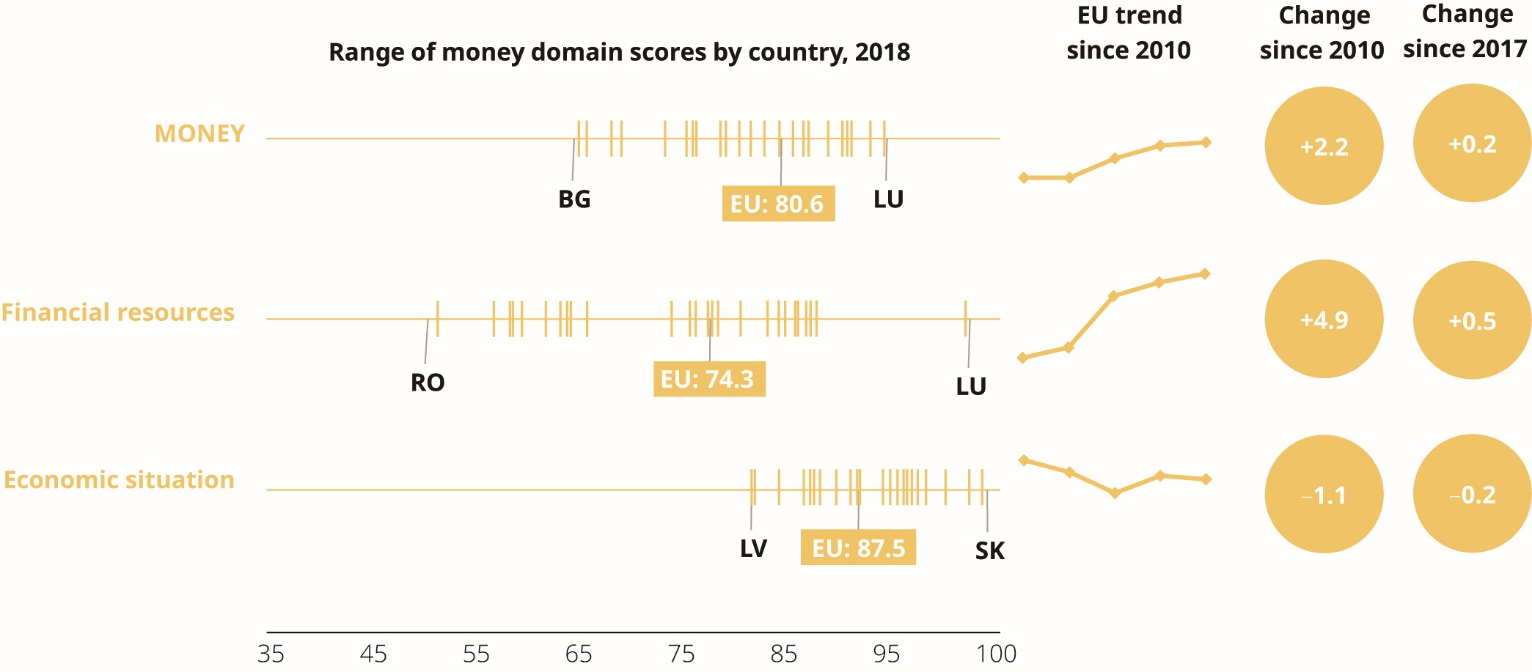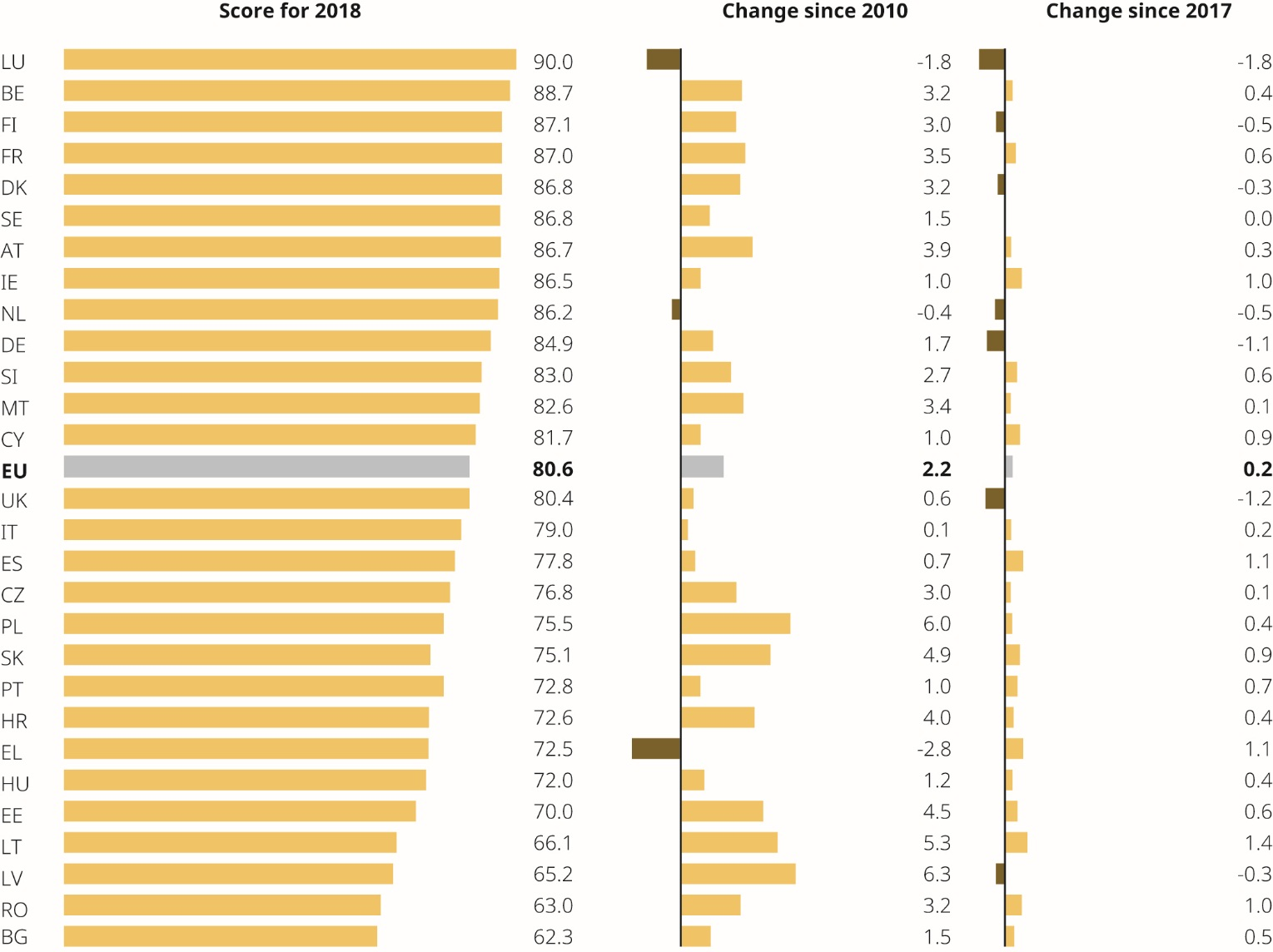The pursuit of women’s economic independence: nothing less than an uphill battle
Women’s economic independence has long been a focus of EU gender equality policy. However, women remain in a more precarious economic situation, including when it comes to accessing financial resources.
With a score of 80.6 points, the domain of money[1] shows very minor improvement (0.2 points) since 2017 and an increase of only 2.2 points since 2010 (Figure 8). This domain has the second highest score, after the domain of health.
Figure 8. Scores for the domain of money and its subdomains (2018), and changes over time
The subdomain of financial resources scores 74.3 points, which is a slight improvement (up 4.9 points) since 2010. Closing gender gaps in monthly earnings and income from pensions, investments and other benefits is painfully slow. The score for the subdomain of economic situation is higher, albeit without substantial progress on closing gender gaps in poverty and income distribution.
The majority of EU countries slightly narrowed their gender gaps and improved overall performance on financial resources and economic situation (Figure 9). The fastest progress since 2010 was in Latvia (+ 6.3), Poland (+ 6) and Lithuania (+ 5.3). Latvia and Lithuania slightly reduced income inequalities among women and men, while Poland fractionally narrowed the gender gap in poverty.
Greece (– 2.8), Luxembourg (– 1.8) and the Netherlands (– 0.4) show a negative trend over the 8-year period. Although the country reduced the gender gap in earnings, income and poverty, data for Greece show that inequality in income distribution increased. In the Netherlands, gender inequalities in earnings – and particularly in income – have increased since 2010.
Luxembourg ranks first in the subdomain of financial resources and managed to reduce the gender gaps in earning and income. Nevertheless, it fell considerably in the ranking of economic situation (from 9th in 2010 to 23rd in 2018) as an outcome of the increased risk of poverty for women and higher income inequalities among women.
Similar patterns are evident in Ireland, Denmark and Germany, which have relatively high rankings for gender equality in financial resources (3rd, 4th and 5th, respectively), but score much lower for gender equality in economic situation (ranking 15th, 14th and 17th, respectively).
The opposite trends can be seen in Slovakia, Czechia and Slovenia, which take the top three positions in the subdomain of economic situation, with low gender gaps in poverty and income distribution. They rank relatively low for gender equality in earnings and income, however, at 23rd, 21st and 16th positions, respectively.
Figure 9. Scores for the domain of money, and changes since 2010 and 2017, in the EU Member States

